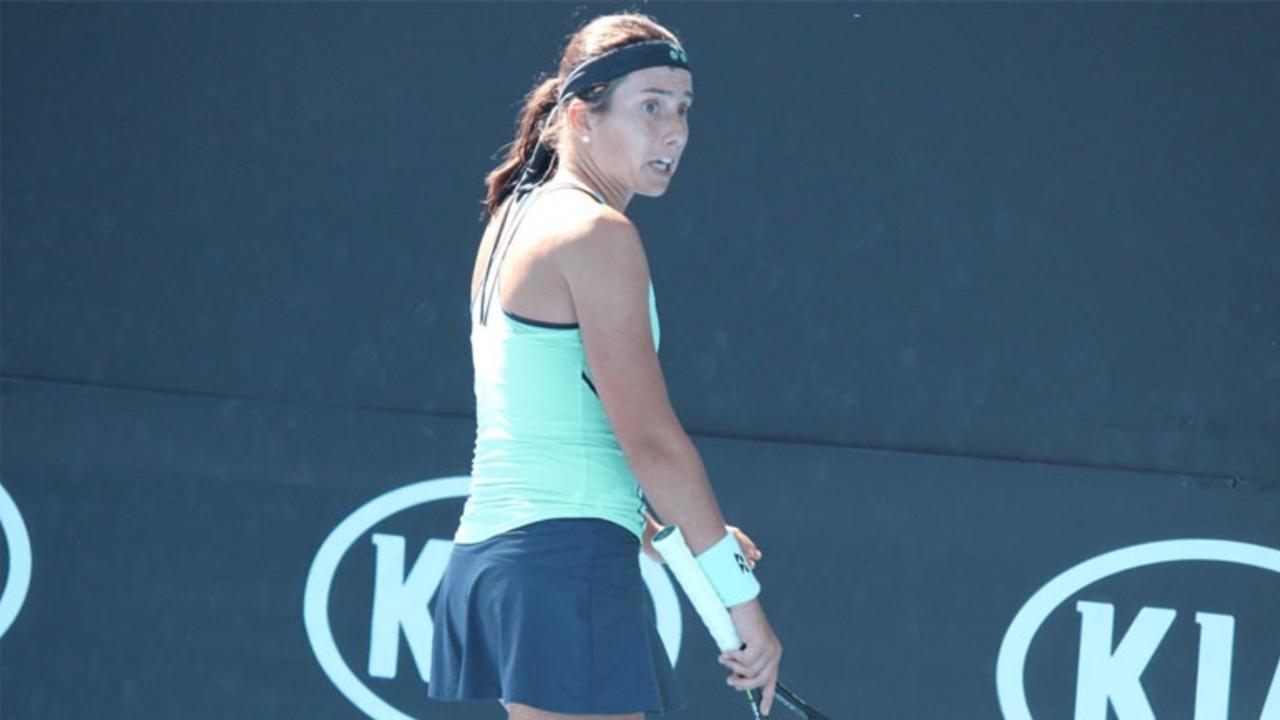Mental training for Tennis - 6 Strategies
Jun 20, 2019
We all see so much of what people do physically in their tennis training. I still find it surprising, when I tell somebody I do tennis mental training people often laugh and say something like
“You are nuts” or "I don't believe in that stuff"
I always encourage people to try it, before they judge it.
Have you ever done a mental training session? “Why would you do that?”
In short, so you can play your best more often despite tough feelings and pressure. So you have strong routines, strong positive body language, have better tennis conditioning, are more aware of your thoughts, and have the capacity to let go quickly, so you can select the right options and have a clear mind.
So, how do you practice mental training? You can start with the following exercises. Do 2-3 minutes of each one every day, the whole routine should only take 10 minutes, it is often best at night when your mind is more receptive (You can set a reminder alarm in your phone to prompt you).
Mental Training for Tennis Strategies
Invest your focused attention to produce focused energy in what you do. These little things add up and you draw on them for self-belief and clear direction on the court and in life.
1. Deep Breathing
This lines up your heart, mind, and body to the same rhythm so you can do your best work in this state. Your heart rate relaxes, you have time and space and can recover better. Breathe in for 4 seconds, out for 6 seconds for 10 cycles (2-3 minutes).
Do this before:
- practice or play
- tennis fitness training
- learning new skills
- during tennis stretching
- when recovering for tennis
- GAP training (see below)
- when saying your affirmations
- when you feel you’re in a bad state
2. Gap Training
The aim is to increase the space between one thought to the next, so you improve your ability to whole focus. You observe your thought and then let it pass rather than react and jump to another thought and another.
Deep breathing is done during gap training so after you practice this you can access a better state of mind. Acquiring this skill is good for players as it gives them the ability to learn to focus better and let go of what they do not need or want.
3. Gratitude/Journaling
When you notice good things in your life more often, you can shift quickly from an obstacle to positivity again rather than negatives building and being your own enemy.
Write down 3 things each day you are grateful for and why. What feelings do they inspire in you? Your positive thoughts need to outnumber the negative thoughts. Also just let your pen run and write in a journal to get them out of your head.
4. Clear & Plan your Schedule, drop what you don’t need
First of all order, your life set a clear schedule. Sleep, school/work, social, competitions, and practices. When your schedule and environment are clear and have space you can have a clear mind with space.
Drop all the extra stuff you don’t need - worries, distractions, excuses, gossip, doubts, false beliefs and technique thought, stuff you don’t use. This makes space for being yourself and doing what you are here to do.
5. Create your Affirmation
Your affirmation is a daily reminder you say to yourself every time you do something daily, it generates strong feelings, energy, and inspiration, so choose meaningful words. You need to do deep breathing and visualization when you say it and then it builds in strength over time.
It is in the present state (I am) as if it’s already here. An example is “I am on the Junior Davis Cup tennis team and when I give my best effort mentally and physically I win my singles & doubles matches against anyone in the world. My family, coach, and country are proud and I’m proud of myself.”
6. Imagery/Visualisation
When doing imagery use as many of your senses possible – what do you feel, smell, hear, feel, see? A good way is to visualize your competition in reverse order. Imagine the feelings you and your team have after you win at the celebration afterward, then being awarded the winners cheque/trophy/medal at the ceremony, then imagine your best performance in great detail.
Finally, your warm-up, travel to the venue, and morning routine. See it clearly! The reason for this is studies show the brain doesn’t know the difference between mental and physical repetition when done with great attention and deep breathing. I think this is one of the most overlooked things and will gain more recognition.
We don’t see mental practices publicized much because it isn’t as popular but the best performance is a relaxed performance and these activities allow you to do that more often because they create and strengthen self-belief (which beats everything else). Because you have rehearsed it so many times you are confident with what you are doing and can see the outcome you want.
I assure you the best of the best get this done daily in some of the above examples or more. Once you have your techniques you need to drop thinking and use your heart, go on feel, channel your energy on love and passion for what you do, and what you do for others, instead of ego and fear.
Mental training should also be incorporated into physical practices by setting up tennis-specific game simulations where something has gone wrong so you are well prepared for worst-case scenarios and play autonomously despite tough feelings when the pressure is on.
Everyone can play well when things are going well, it’s up to you to practice in more demanding circumstances with bets or consequences for your actions. Everyone moves well at the top but in my opinion, specific training for your sport such as that which Tennis Fitness provides and mental fitness are separating factors in realizing your true potential and gaining mastery.
I hope you can utilize some of the information in this post and wish you all the best with it.
This information is largely courtesy of Damien Lafont, Mental Training Coach, PhD.
Thanks to Tennis Fitness for the chance to write a blog, love your work!
By Sam Storer, Growl Weightlifting. Courtesy of Tennis Fitness


